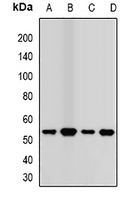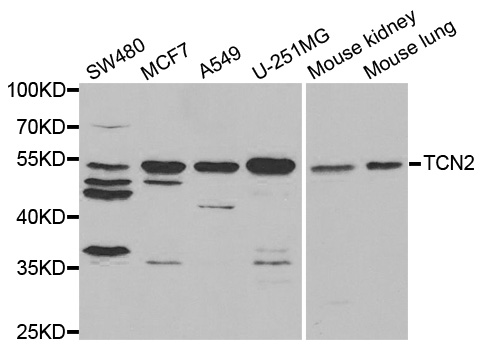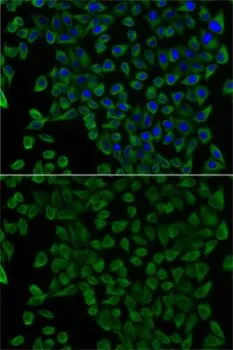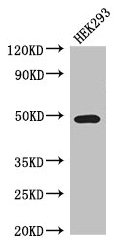
WB analysis of various samples using GTX04826 Transcobalamin 2 antibody. Lane A : MCF-7 whole cell lysate Lane B : A549 whole cell lysate Lane C : Mouse kidney tissue lysate Lane D : Mouse lung tissue lysate
Transcobalamin 2 antibody
GTX04826
ApplicationsWestern Blot
Product group Antibodies
ReactivityHuman, Mouse
TargetTCN2
Overview
- SupplierGeneTex
- Product NameTranscobalamin 2 antibody
- Delivery Days Customer7
- Application Supplier NoteWB: 1:500-1:1000. *Optimal dilutions/concentrations should be determined by the researcher.Not tested in other applications.
- ApplicationsWestern Blot
- CertificationResearch Use Only
- ClonalityPolyclonal
- ConjugateUnconjugated
- Gene ID6948
- Target nameTCN2
- Target descriptiontranscobalamin 2
- Target synonymsD22S676, D22S750, II, TC, TC II, TC-2, TC2, TCII, transcobalamin-2, macrocytic anemia, transcobalamin II, transcobalamin II; macrocytic anemia, vitamin B12-binding protein 2
- HostRabbit
- IsotypeIgG
- Protein IDP20062
- Protein NameTranscobalamin-2
- Scientific DescriptionThis gene encodes a member of the vitamin B12-binding protein family. This family of proteins, alternatively referred to as R binders, is expressed in various tissues and secretions. This plasma protein binds cobalamin and mediates the transport of cobalamin into cells. This protein and other mammalian cobalamin-binding proteins, such as transcobalamin I and gastric intrisic factor, may have evolved by duplication of a common ancestral gene. Alternative splicing results in multiple transcript variants.[provided by RefSeq, May 2010]
- ReactivityHuman, Mouse
- Storage Instruction-20°C or -80°C,2°C to 8°C
- UNSPSC12352203





